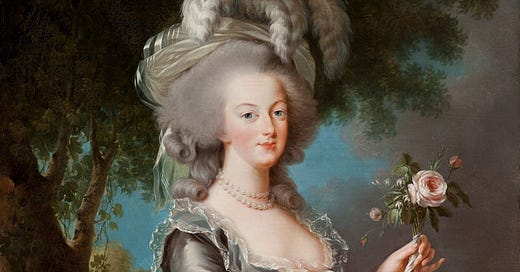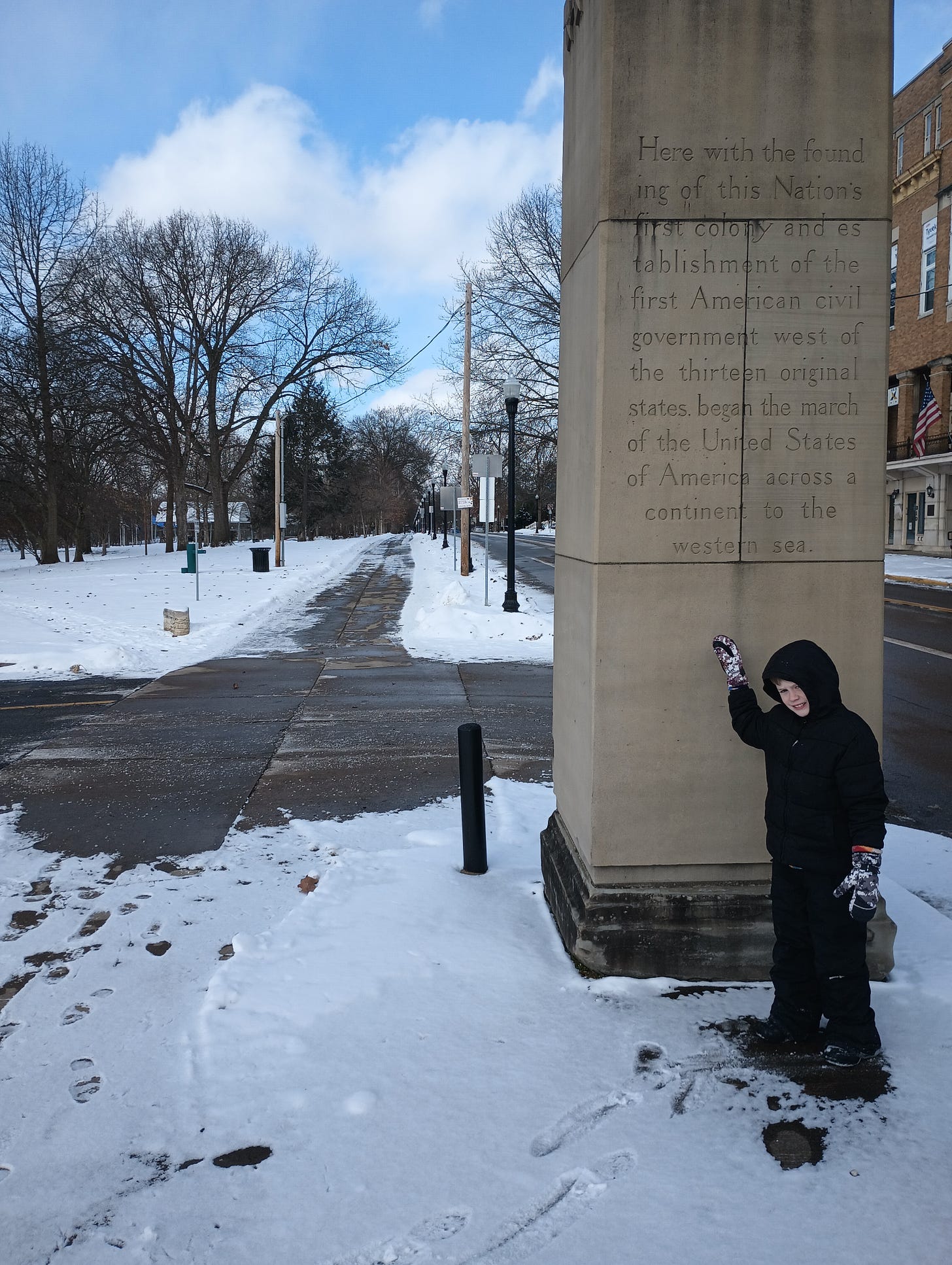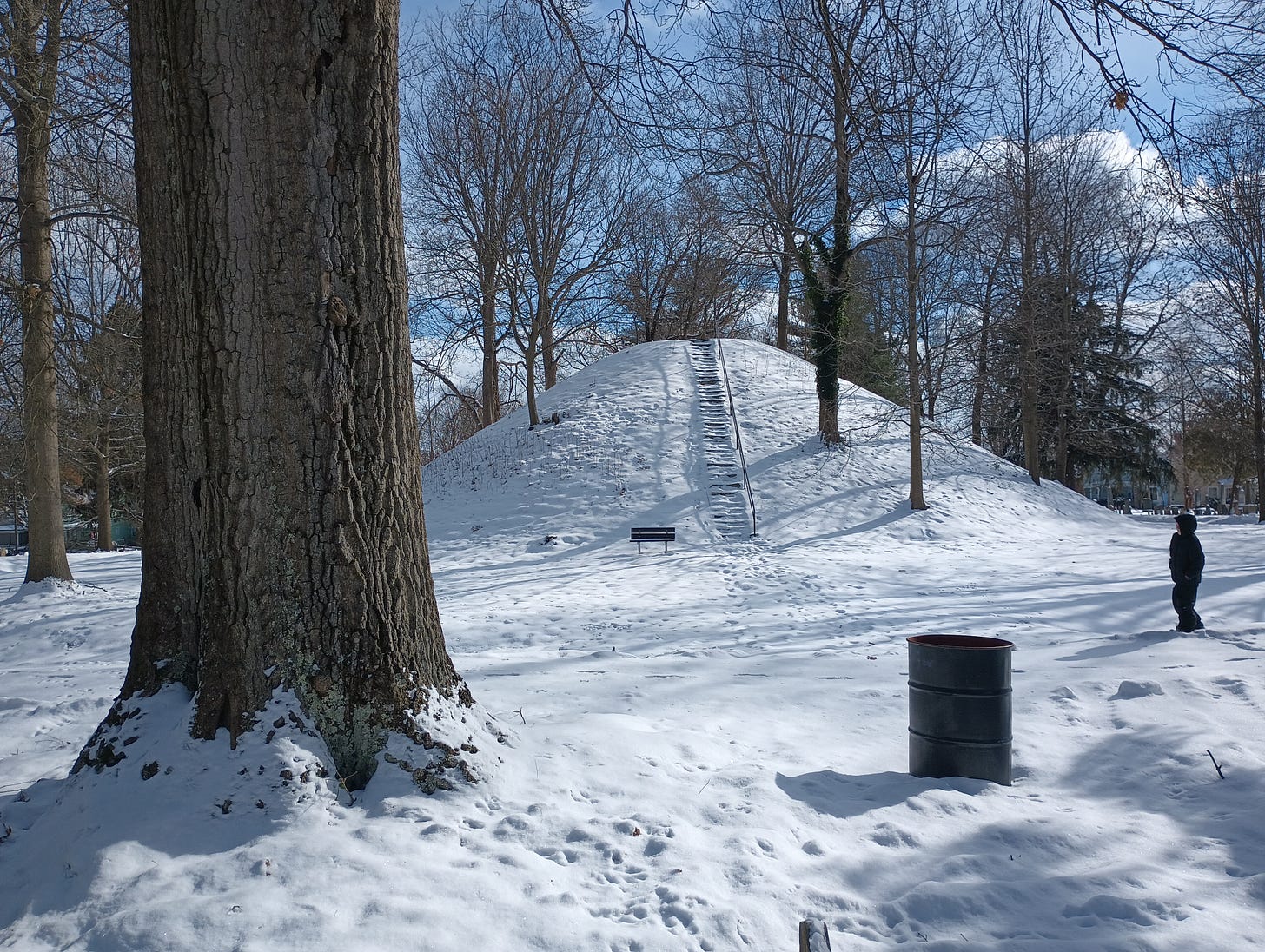We were driving south in the family car when I had a homeschooling triumph. We were nearing our destination, Marietta, the first town settled by Europeans in Ohio. It is my custom to do a final lesson in preparation for arrival. “All right kids,” I said, “we’re about to arrive in Marietta.” A car zoomed by us on the left. I never have been a fast driver. “Marietta was named for a woman named Marie Antoinette, who was the queen of France at the time.” Then, with some trepidation, I said, “Can you tell me why settlers in Ohio in the late 18th century would want to name their town after a queen of France?”
The relationship of the United States to France hadn’t been the focus of any lesson; but I had mentioned it; and it was a natural thing for the kids to think about, because we had discussed the struggle of the various Old World powers for control of the Americas. But I hadn’t emphasized it. In fact I hadn’t even known myself that Marietta was named for Marie Antoinette until my final preparation for the trip. But given the fact that it was named for Marie Antoinette, I thought they could figure out why.
The kids droned back nasally, as if it was a boring, stupid question: “Because France helped the United States in the Revolutionary War.”
Triumph. They were learning. I wasn’t just talking to myself during their classes.
King George III had defined the Ohio River as the western edge of European settlement. After the Revolutionary War the United States government had decided upon an expansionist policy, not least because the government needed a source of revenue. Selling land became a particularly useful one. We visited the land office in town, still preserved, and now the oldest building in Ohio (built 1788). We had discussed the Northwest Ordinance (or 1787 ordinance), which had laid out the details of settlement, and we made our way to a monument for the Northwest Ordinance along the river’s edge.
I wanted to emphasize the last article of the ordinance, establishing the Ohio territory as a land where there would be no slavery:
Article 6. There shall be neither slavery nor involuntary servitude in the said territory, otherwise than in the punishment of crimes whereof the party shall have been duly convicted.
This became the law of the whole nation with the 13th Amendment, which borrowed its language. But it is meaningful that when the United States had a chance to establish a new polity on its own, not under European jurisdiction, slavery would have no part in it.
The kids, however, were much more interested in another article, the first real detail of the Ordinance. After a first section declaring that the region would be one district but could be divided, it decrees:
Sec 2. Be it ordained by the authority aforesaid, That the estates, both of resident and nonresident proprietors in the said territory, dying intestate, shall descent to, and be distributed among their children, and the descendants of a deceased child, in equal parts; the descendants of a deceased child or grandchild to take the share of their deceased parent in equal parts among them.
Equality of inheritance – as opposed to English primogeniture – was to be the basic law of the land. A parent could make out a will decreeing otherwise, but if a person died intestate the law would presume that the estate was to be “distributed among their children... in equal parts.” We had a discussion how they would feel if their oldest brother John inherited everything and no one else got anything; John declared this was a great idea, but the others hated it. We discussed how Ohio was intended to be a place of equality from the beginning, and they were extremely interested in this concept of wills and inheritance and division of property.
The Northwest Ordinance monument describes Marietta as “the nation’s first colony,” which is an interesting way to put it. The boat carrying settlers here – they came from Connecticut – was called the Mayflower. There is a park where the Mayflower landed, an account of which landing is in my copy of Howe’s Historical Collections of Ohio. The kids took particular interest in this story, which we read there, in part because they have ancestors who came to America on the original Mayflower, through their mother’s side of the family.
The town is very pretty, and there is another remarkable mound here, now at the center of a cemetery. The downtown is well tended, with some nice shops. We stayed in a hotel with a pool, which the kids loved – we swam night and morning. In general this was an excellent home school visit, and another piece of what will be an excellent Ohio history homeschool curriculum (for more information on this project, see my earlier essay here). My general conclusion is that people will take an interest in Ohio history, if someone begins teaching it.









Tocqueville, early in Democracy in America, attributes considerable social important to America's "laws of inheritance" (because, by breaking up estates, they prevent the consolidation of a class over time).